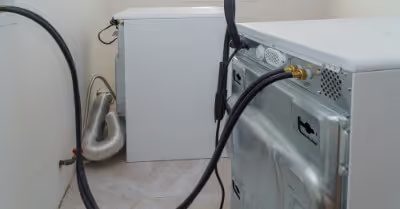Table of Contents
Collateral Loans
Collateral loans, also known as secured loans, make the lending process less of a risk to lenders and make them more likely to let someone borrow their money.
Things like a boat, car, home, land, or jewelry can be put up as collateral. If the loan can not be paid off with money, the lender can claim the collateral asset.
For example, mortgage loans are collateral loans. If someone can not pay their mortgage, they lose their home.
It is easier to get an unsecured loan if the lender has information about you that makes them confident you can pay them back, like income or credit score.
Using Land As Collateral
If you own land, you want to know the exact amount it is worth.
Both for the project’s budgetary, and so you know that the lender is offering you a fair amount when you put the land up for collateral.
You can do this yourself by researching value factors such as the location of the land, the size of the land, and the land’s accessibility to roads.
You may be better off getting a valuation done by a third party, like tax assessors or appraisers, to make sure that you are being offered a fair amount.
It can also make a bank more open to giving you the construction loan because they would not have to pay for any valuation related expenses.
Land Equity
Land equity is the value of your land subtracted by how much you have left to pay on it.
Land equity is the common form of collateral on a construction loan.
Construction Loans
Construction loans are used as a short term means of obtaining the finances to build a home or other real estate project.
These are also known as self-build loans and are usually for a year or less.
These loans are meant to allow the homebuyer or builder to cover project costs until they can receive long-term funding.
It is common for construction loans to have higher interest rates compared to more traditional mortgage loans because of the risk.
After the home’s construction is complete, the home buyer/ builder that got the construction loan has two options:
- Get a new loan (often called an “end loan”) that can pay off the self-build loan
Or
- Refinance the self-build loan to become a permanent mortgage
Are Construction Loans Complicated?
Yes, when compared to traditional mortgage loans, construction loans can seem more complicated.
The loan is taken out on a home that is not yet in existence. Then, after the completion of the build, it will be converted into a mortgage.
It is common for lenders to offer only 70% to 80% of the appraised value.
When To Use Construction Loans
It is usually recommended to use construction loans for more significant renovations or even when building a house from scratch.
You may be able to receive up to 80% of your land equity value from a lender.
For smaller renovations that will cost around $10,000 or less, it is typically recommended to get a personal secured loan.
This way you might be putting your vehicle up for collateral rather than land.
How To Begin Using Land As A Down Payment
Get Land Pre Approved/ Appraised
This will let you have a reasonable basis for a budget from the very beginning.
Get a professional appraiser for an accurate number. Oftentimes, the lender will be able to recommend some.
Organize Documents
Having all the documentation that could be asked for can significantly increase approval time. Having tax returns, pay stubs, and bank statements on hand is a good idea.
Prepare For Loan Applications
Lenders will be looking at all applicants’ income, credit score, ad debt-to-income ratio.
This is how interest rates will be calculated.
You can minimize your interest rates and increase chances for approval by ensuring there are no errors on your credit report and pay off as much outstanding debt as possible.
How To Save Money While Building A Home
Research Every Detail
Saying yes to every feature and addition you like can add a shocking amount to your total.
Specific windows and roofing styles can add tens of thousands of dollars to your project!
Look into any cheaper options and sustainable alternatives that could save you money before you commit.
Get A Good Builder
The builder you choose will impact the final result of the project and the final cost.
Looking into builders reviews, certifications and insurance can let you know that you are making the right choice. The ultimate goal is great quality AND a great price.
6 Best Construction Loan Lenders
Nationwide Home Loans Group
Nationwide Home Loans Group, a Division of Magnolia Bank, was rated #1 best construction loan lender of 2020.
It was awarded this title because it is able to combine up to three loans in one closing process, has low down payments, low rates, and great accessibility (open 7 days a week and lends to 48 states)
They have programs with up to 100% financing available and can finance the land purchases, construction loans, and permanent mortgages into one rate-locked close.
However, this combination can lead to higher rates on the permanent mortgage and may not be the solution for home builders with bad credit, as their minimum credit score is 540.
FMC Lending
FMC Lending however can be the saving grace for home builders with bad credit scores.
Their programs do not even require a credit report at all. Prior bankruptcy is accepted and they go off of your stated income with no proof needed.
If speed is of the essence, FMC Lending may be the way to go, as they can help you close within a week.
Because of their more relaxed acceptance requirements, there is a higher than average interest rate.
The down payment requirement can be anywhere from 20% to 30% and most FMC Lending loan terms are on the shorter side, ranging from 1 to 7 years.
GSF Mortgage Corporation
GSP Mortgage Corporation offers the best low down payments for construction loans.
Their government-supported loans allow for as low as 0% down payment, and up to 5%.
Their rates and credit score minimums are not available on their website, so potential lenders would have to call or set up a consultation for the exact numbers.
US Bank Home Mortgage
This construction loan is a great option for potential lenders who want a traditional bank loan.
NerdWallet gives US Bank Home Mortgage 5/5 stars for their large selection of loan offers and great online service.
However, you can not get a mortgage rate online and they expect above average credit scores. The minimum credit score is 620.
TD Bank Mortgage
This loan provider also ranks high for their online convenience, low down payment rates, and specialty loans.
They offer single and double close options with fixed or adjustable rates and flexible down payment options.
TD Bank only services East Coast states, and they require a short form to be filled out in order to see potential interest rates.
Their minimum credit score is 620 and their minimum down payment rate is around 3%.
Nationwide Home Loans Inc
This loan provider is an excellent option for first time home buyers.
Nationwide Home Loans Inc specializes in low to no down payments, and offers one-time close construction to permanent loans.
However, they only service 8 states.
Recent Articles
















